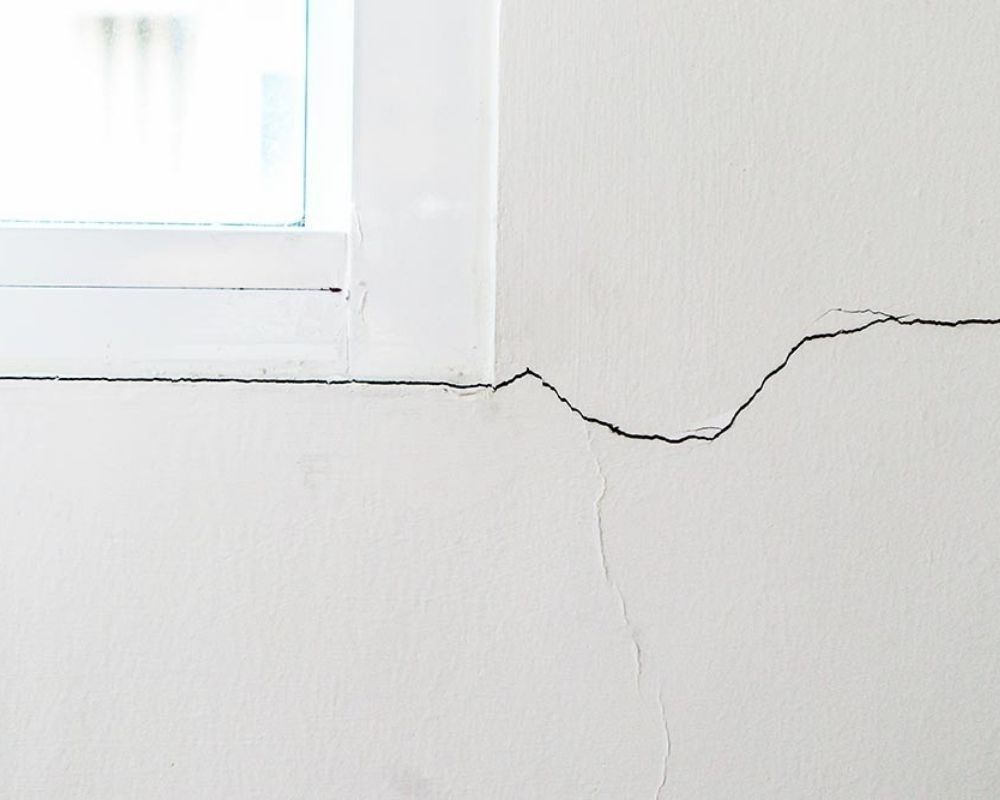Common causes of foundation issues may include water, how the soil compacts, the age of the foundation, and issues with trees being planted too close. One thing that is commonly known is that foundation breaks and cracks occur due to settling, sinking, and shifting. The combined forces of gravity and hydrostatic pressure against surfaces like concrete set the stage for the concrete to experience issues.
Settling and shifting will happen with every home’s foundation, regardless of your location. However, you likely want to know why your home is shifting and settling, as well as what you can do about it. Read on to learn more.
Water Issues Are Among the Most Common Causes of Foundation Issues
Knowing how water may impact your foundation makes it easier for you to have a plan to address these issues. During times when the Kansas City area sees a lot of heavy rain leading to flooding, problems with your foundation are more likely. Sometimes, water sources near your house may be the problem.
However, not all water issues are necessarily weather-related. Poor drainage, often attributed to improperly installed gutters or downspouts, or yard grading, are some of the most common reasons for foundation issues. Another cause of water-related issues that might affect your foundation includes plumbing leaks, particularly in basement areas.
How Soil Compaction May Affect a Foundation
Expansive soil is one of the most common causes of foundation issues. A quick definition of expansive soil is soil types, such as clay, that expand when wet. As expansive soils dry, they contract, which leads to settling and shifting. Because the rate is uneven, there is a greater chance of structural damage.
The behavior of clay is one example of how soil compacts. Although soil should be compressed before pouring a foundation, this has not been the case for every property. The soil depth before reaching the bedrock influences how the soil compacts. If a home builder neglected to pack the soil properly during construction, shifting and settling are more likely.
Common Causes for Foundation Issues May Include the Foundation’s Age
Many associate older homes with higher-quality construction, and this is often the case. Why then are older homes more likely to have foundation issues? One of these reasons is that soil compaction standards for construction sites have changed over the years. Some of the methods used in previous times predated modern building codes.
Some older homes have foundations crafted of materials that are not as durable as modern materials. Concrete slabs were not broadly available before the 1940s, and foundations made from materials that predated concrete are less durable than their newer counterparts. Erosion also causes wear on foundations over time, which can affect overall longevity. A professional will be able to help you decide whether foundation replacement or repair is necessary.
The Impact That Trees Can Have on a Foundation
Trees are among the common causes of foundation issues, but the way that tree roots impact the soil is different from what you might think. Although it is possible for extensive tree roots to cause damage by growing into the foundation, this is not very common. How tree roots are most likely to impact a foundation is by diverting water out of the soil, causing more settling.
Soil deprived of water starts to contract, and because this leads to the foundation shifting and settling, your foundation might end up damaged. One of the things that you can do to minimize the potential for issues related to a sinking foundation is to remove trees too close to your foundation. When planting any further trees in the future, it is a good idea to keep the impact on your foundation in mind.
Problems with your foundation can be troublesome and you may wonder where to start first. Contact us to discover what is most likely the common causes of foundation issues in your case and we’ll be glad to help.

